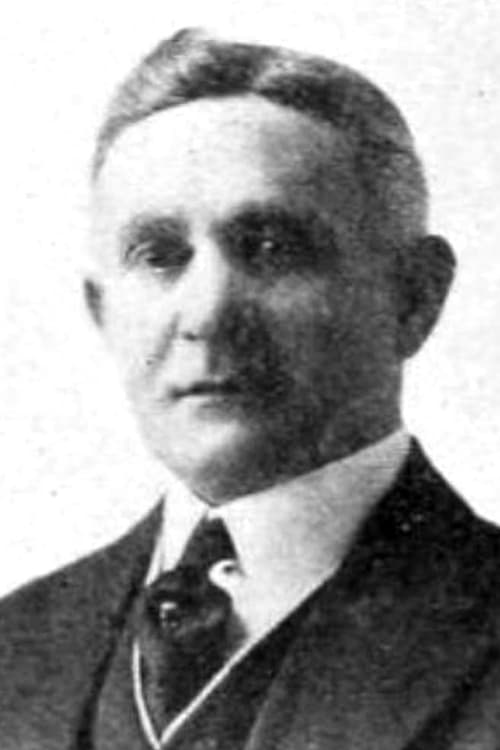
|
The Passionate Pilgrim (1921)
Character: Amme
An innocent man goes to prison for obstruction of justice when his wife refuses to reveal that her father was killed by her mother (and it wasn't suicide). When he is finally released, he meets and becomes involved with a young woman who belongs to the town's influential elite. Once again, he finds himself caught up in intrigue - which eventually leads to his exposing the mayor of the town as corrupt.
|
|

|
The Butterfly (1914)
Character: N/A
A father tries to keep his son from marrying a poor actress. She eventually becomes a famous and wealthy leading lady, and is reunited with the son.
|
|

|
Underneath the Paint (1914)
Character: Mr. Kelly
Walking through the Ghetto, Arthur Kellogg rescues Tryphena Winters, an actress, and her little sister, Salome, from starvation. He falls in love with, and proposes marriage to Tryphena, but she tells him she must first make her success on the stage.
|
|

|
The Virtuous Model (1919)
Character: N/A
Denise Fleury supports her invalid mother in the Montmartre slums by making artificial flowers in a factory. When she loses her job, Denise is convinced by her friend Suzanne to join her working in a cabaret.
|
|

|
Fools of Fashion (1926)
Character: William Norris
Mary Young is a young wife who wants beautiful clothes. Her friend Enid invites her to shop at Madame Francine's, where she meets the Countess de Fragni, an artist, and Mr. Norris, an elderly roué and he invites her to a poker game. She wins and buys an expensive fur coat with the money but tells her husband she won it with a pawn ticket.
|
|

|
Billy the Bear Tamer (1915)
Character: The Father
A young man's girlfriend is forbidden by her father to see him again. When the father takes his family on a hunting trip to the woods, the girl and her suitor hatch a plan where he dresses up in a bear suit to "menace" the family, then leaves and reappears as himself to "save" them. However, things don't go quite to plan.
|
|

|
Lillian's Dilemma (1914)
Character: N/A
Lillian dresses as a man to gain access to a boy's school. (from Performing Queer Female Identity on Screen: A Critical Analysis of Five Recent Films)
|
|

|
Buddy's First Call (1914)
Character: N/A
Buddy Watson, the youngest of three brothers, and just getting accustomed to long pants, meets Elsie Forster at a church social and is smitten by the young lady's charms. He writes, addressing the letter simply, "Miss Forster," asking permission to call. Elsie gets the note and joyously answers "yes," but Grace, her sister, sees the letter and is quite sure he means her.
|
|

|
Partners in Crime (1928)
Character: Kanelli, The Restaurant Owner
After being dismissed for imitating his boss's voice on radio, former Assistant District Attorney Richard Deming witnesses a store robbery and is taken captive by the criminals. Suspected of the crime, he is sought by the police, but his sweetheart, Marie, convinced of his innocence, enlists the help of two friends, a newspaper reporter and a half-witted detective. Hoping to win the girl's favor, the two go to the gangsters' hideout, encounter a violent gang war, and accidently set off a case of police tear bombs. The police, summoned by Marie, arrive just in time to save the kidnaped attorney.
|
|

|
The Belle of Broadway (1926)
Character: Laroux's Associate
Madame Adele, once a great star of the Paris theatre, has fallen upon hard times. But she allows a young American performer, Marie Duval, to perform as the Madame Adele of old, and both become the darlings of Paris, one again and the other newly-crowned.
|
|

|
Romance of the Rio Grande (1929)
Character: Padre Miguel
Fox's immediate follow-up to its successful early-talkie western In Old Arizona was 1929's Romance of the Rio Grande. The story focuses on the Alvarez family of Mexico, specifically fabulously wealthy Don Fernando. Intending to bequeath his vast fortune and estate to his long-estranged grandson Pancho, Don Fernando must contend with his ne'er-do-well nephew Juan.
|
|

|
Tell 'Em Nothing (1926)
Character: Doc
Charlie is the great divorce attorney, in demand by all women wishing to shed their husbands. While explaining to one woman how to obtain a divorce by getting photos in a compromising situation...
|
|

|
Just Like Heaven (1930)
Character: Monsieur Fogharde
Tobey is a headstrong peddler who sells balloons on the streets of Paris. A traveling dog circus usurps his corner and a power struggle ensues between Tobey and the circus's beautiful ballet star, Mimi. Intent on ruining the circus's chances at success, Tobey sabotages their performances. But after a tragedy befalls Mimi, Tobey has a dramatic change of heart and views Mimi in a completely new way.
|
|

|
The Street of Forgotten Men (1925)
Character: Adolphe's Assistant
Easy-Money Charley, the best fake crippled beggar in New York, loses his beloved dog and adopts a dying prostitute's daughter to fill the empty place in his heart. But his fellow crooks and dissemblers mock him for sentimentality, and he disowns the child in order to bring her up secretly in the safety of a distant suburb. He brings her up as a young lady in ignorance of her true history or of his; but when he discovers that her affections have taken an unexpected slant, it brings about an end to their tranquil life, a crisis of conscience, and an opportunity for the sinister 'White-Eye' to take a hand...
|
|










